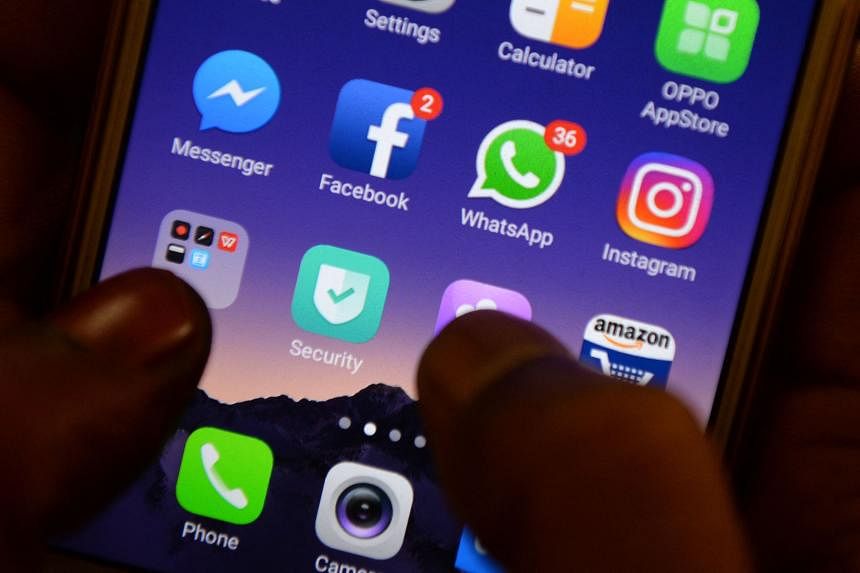LONDON - Child rights activists say social media giants like Facebook and Instagram need to do more to protect children and teens using their platforms, after an inquest ruled that harmful online content led to the death of British teen Molly Russell.
Prince William, heir to the British throne who advocates for mental health, has said online safety for youths should be "a prerequisite, not an afterthought'.
Molly took her own life in 2017. She was just 14.
A coroner concluded that she died after suffering through what her father described as a "demented trail of life-sucking content" peddled by social media.
These social media sites are straight out "monetising misery", said Mr Ian Russel. He singled out billionaire Mark Zuckerberg, who controls the social media giant Meta, owner of Facebook and Instagram, and told him to "listen to the people" .
For the children's charity NSPCC, the ruling on Molly's death should be a "turning point" and a "big tobacco moment" for social media. It should "send shockwaves to Silicon Valley", Sir Peter Wanless, the charity's chief executive", said.
"No parent should ever have to endure what Ian Russel and his family have been through," Prince William said in a post on Twitter.
"They have been so incredibly brave. Online safety for our children and young people needs to be a prerequisite, not an afterthought," he said.
It is unusual for any member of the Royal Family to comment on legal proceedings, according to the BBC. But the Prince has always been an advocate for mental health.
Prince William has talked about his own mental health, and has encouraged people to open up if they are struggling. He created Heads Together, launched to help combat the stigma of mental health, in 2016 with his wife, Catherine, Princess of Wales, and his brother, Prince Harry.
He has also campaigned for more protection for teenagers online.
What happened to Molly?
Mr Andrew Walker, the senior coroner for north London, said Molly, from Harrow in north-west London, was flourishing in school and once had an enthusiastic interest in the performing arts.
But then, she fell into depression. Over time, her condition deteriorated into a serious depressive illness.
"She died from an act of self-harm while suffering from depression and the negative effects of online content," said Mr Walker.
He said some of the content she viewed were "particularly graphic" and "normalised her condition".

Of the 16,300 posts she saved, shared or liked on Instagram in the six months before her death, 2,100 related to depression, self-harm or suicide.
These were images that were dark, miserable and depressing, of nooses, pills and razor blades.
A member of Mr Walker's staff had to leave the room while these images were being shown in court.
Mr Walker said Instagram and Pinterest, in particular, used algorithms that resulted in there being "binge periods", with contents that were selected and provided for Molly without her having requested it.
Some contents romanticised acts of self-harm.
Mr Walker said online materials like these could have exacerbated Molly's depressive illness and vulnerability and "contributed to her death in a more than minimal way".
Feeble response
The week-long hearing became heated when the Russell family's lawyer, Mr Oliver Sanders, took a Meta executive to task.
A visibly angry Mr Sanders asked Ms Elizabeth Lagone, head of health and wellbeing at Meta, why the platform allowed children to use it when it was "allowing people to put potentially harmful content on it".
"You are not a parent. You are just a business in America. You have no right to do that. The children who are opening these accounts don't have the capacity to consent to this," he said.
Ms Lagone apologised after being shown footage, viewed by Molly, that "violated our policies".
In a statement after the hearing, a spokesman for Meta said: "Our thoughts are with the Russell family and everyone who has been affected by this tragic death."
"We'll continue our work with the world's leading independent experts to help ensure that the changes we make offer the best possible protection and support for teens," she said.
A Pinterest spokesman said: "Pinterest is committed to making ongoing improvements to help ensure that the platform is safe for everyone and the coroner's report will be considered with care."
Do better
But for Mr Russel and child rights advocates, these companies - which are piling up billions with algorithms that keep users engaged and being served up ads for as long as possible - need to do more than issue statements.
"If this demented trail of life-sucking content was safe, my daughter Molly would probably still be alive and instead of being a bereaved family of four, there would be five of us looking forward to a life full of purpose and promise that lay ahead for our adorable Molly," said Mr Russel.
Britain's culture secretary, Ms Michelle Donelan, said the inquest had "shown the horrific failure of social media platforms to put the welfare of children first".
She said the proposed online safety Bill, which will require tech platforms to protect children from harmful content, "is the answer", at least in Britain.
Singapore is itself looking to roll out a slew of online safety measures, including content filters and user reporting tools meant to hold social media firms to greater account. These measures - proposed under the Code of Practice for Online Safety and the Content Code for Social Media Services - are expected to be rolled out as early as 2023.
"It's time the toxic corporate culture at the heart of the world's biggest social media platform changed… "It's time to protect our innocent young people, instead of allowing platforms to prioritise their profits by monetising their misery." said Mr Russell.

